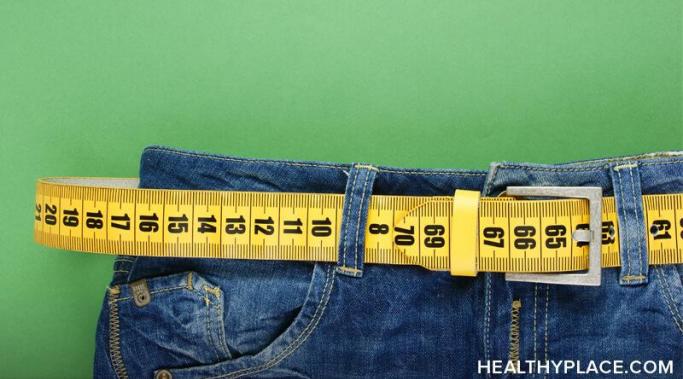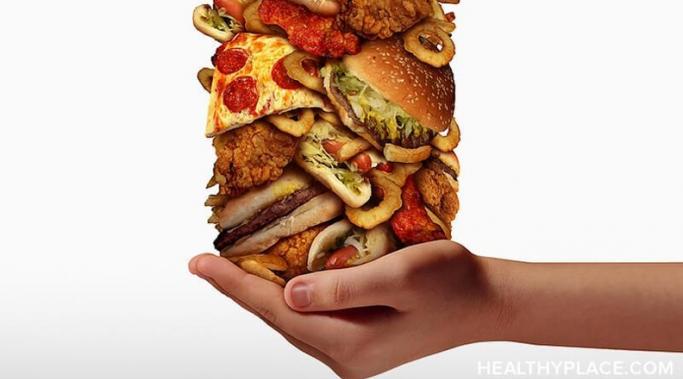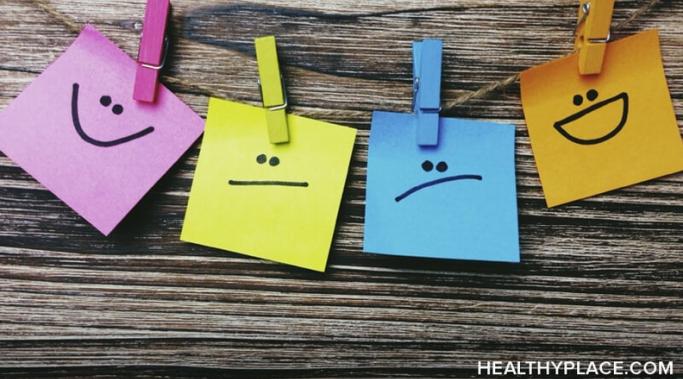An estimated 9.2 million adults in the U.S. live with more than one form of mental illness, and that statistic does not even count the numerous children and people across the globe who experience this reality also. Two mental health issues that can co-exist with one another are eating disorders and panic attacks, both of which can escape detection or diagnosis. While panic attacks can range in severity and escalate for a number of different reasons, many of the same fears that cause eating disorder behaviors can contribute to panic attacks as well. If your eating disorder often co-exists with panic attacks, coping mechanisms are available to you.
Surviving ED
One of the most unsettling parts of my eating disorder recovery were the dreams about binge eating. These dreams which featured me eating too much and struggling with the guilt and my desire to purge, followed me into recovery, and I was surprised: I thought when I decided I was done with my bulimia, my bulimia should have been done with me.
Whether your therapist suggests that you start writing about eating disorders or you decided to start on your own, there are many benefits to the practice. However, not everyone writes about their experiences for the same reason.
It's not exactly a shock that eating disorders can wreak long-term havoc on how the body functions—even as the behaviors subside and a healthy weight is achieved. But did you know there is a correlation between eating disorders and issues with metabolic rate?
Can I share a fundamental, irrevocable truth that you just might need to hear? Your personal identity is more than an eating disorder. Even if you cannot imagine a life without this illness right now, I want you to know that recovery is attainable, and you are capable of existing in a world that does not revolve around your eating disorder. How can I voice this with absolute confidence? The answer is simple—in these past few years, I have been on a crusade to unearth and reclaim my own identity outside the diagnosis of anorexia nervosa; so if I can do this, I guarantee you have the same potential, too.
Trying to stop binge eating at night isn't solely a matter of willpower -- especially when you've suffered or are suffering from an eating disorder. I know firsthand how distressing this behavior can be for those of us who are struggling to take control back from this food-centric disease, but the tips I am about to share can help.
If you have a history of eating disorder behaviors or mindsets, then you have most likely body checked yourself, or stood in front of a mirror and scrutinized your reflection with a severe and merciless eye. Chances are, you understand how it feels to wither beneath your own cruel gaze which repeatedly dissects the size, weight, shape, and curvature of a frame that will never be adequate to you. This ritual is known as compulsive body checking, and it can worsen your eating disorder tendencies. But if that toxic pattern sounds familiar, rest assured, it is possible to break yourself of a compulsive body checking habit.
Just this morning, I opened my email inbox and noticed a subject line which read, "How many steps should you take to lose weight?" As someone who continues to battle thoughts of anorexia on a daily basis, my first reaction to seeing this was to click the email thread, so I could know the answer. I was even tempted to scroll through my mobile fitness tracker to ensure I habitually reach the step count required. But since I am also in committed recovery now, this initial reflex was supplanted by another, more constructive question: "Can fitness trackers worsen eating disorder behaviors?" Could monitoring the number of steps taken, floors climbed, miles run or walked, and calories burned increase the obsessive patterns which eating disorders thrive on? Based on my own experience, I think that answer is, "Yes."
Binge eating at night is a problem for just about everyone who has the luxury of steady access to food, whether they are in eating disorder recovery or not. However, for those of us in recovery, these nighttime binges can be detrimental to our progress.
Before offering my advice, most loved of those in eating disorder recovery want to know how they can help, but understandably, people aren't always sure where to go for it. In this video, I talk about the one thing that well-meaning, but misguided, loved ones would do that has undercut my confidence in recovery.








